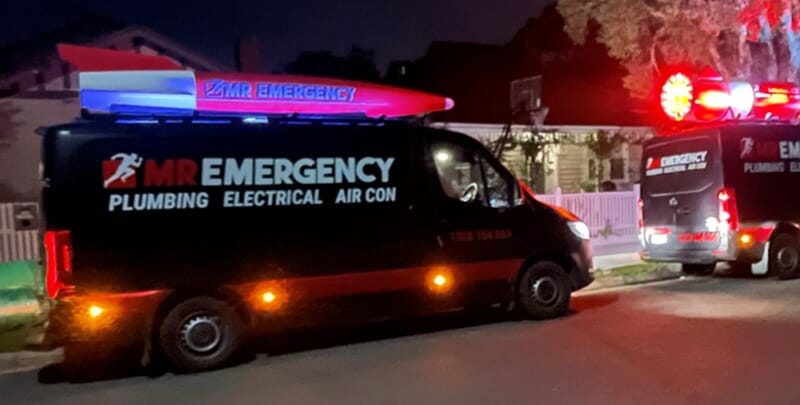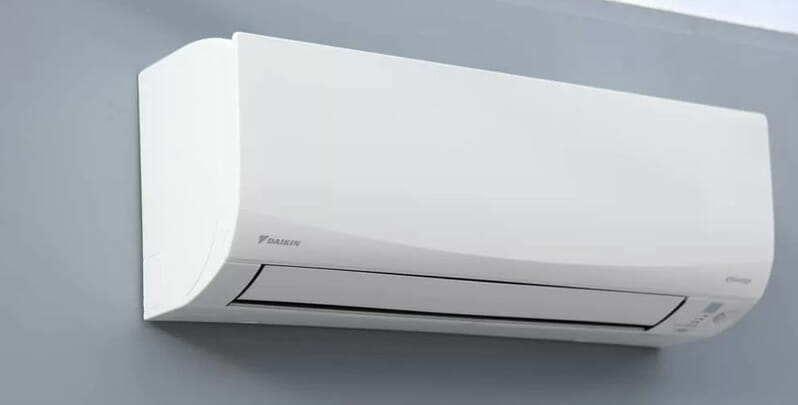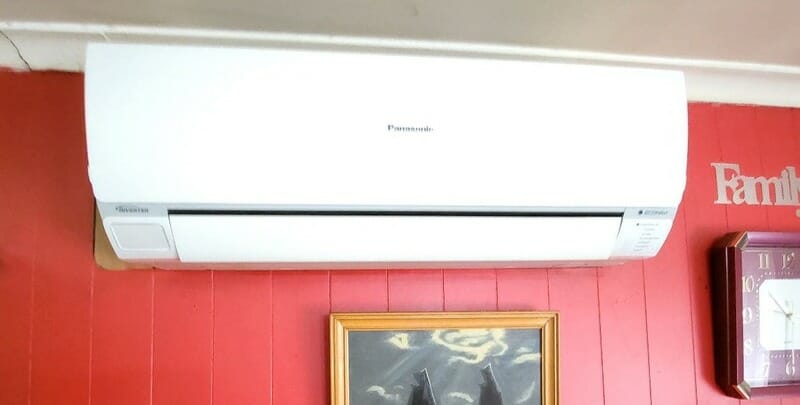
Learning About Home Air Conditioning Units
Home air conditioning is more than just a luxury; it’s necessary, especially in regions with scorching summers. The system keeps your home cool and comfortable when the heat becomes unbearable.
But to fully enjoy its benefits, you must understand how to make the most of it. This blog will delve into essential tips and advice for home air conditioning.
Assessing Your Cooling Needs
Assessing your cooling needs is crucial before diving into the home air conditioning world. Several factors should influence your decision on what type and size of air conditioner system to install.
Firstly, consider the size of your home. A smaller space does well with a window unit or a ductless mini-split, while larger homes require ducted air conditioning.
Correct sizing of your split system air conditioners is vital. An oversized front AC unit can lead to excessive energy consumption and uneven cooling, while an undersized team will need help to keep your space comfortable.
Furthermore, energy efficiency should be a top priority. Invest in an Energy Star-rated system, which can significantly lower your energy bills. Remember that higher upfront costs often translate to long-term savings.
Choosing the Right Air Conditioning System
The world of portable air conditioners and various air conditioner brands of air conditioning units offers a variety of options, each with pros and cons. Let’s briefly compare some of the most common types of air conditioners:
- Ducted air conditioners: Ducted systems are ideal for whole-house heating and air, and whole installation heating and air and cooling air and heating, it distributes cool air and warm air through ducts.
- Ductless mini-splits: Perfect for room additions or homes without ductwork. They offer zoned cooling.
- Split system air conditioner: Probably the most popular type of air conditioner on the Australian market. A split system air conditioner consists of an outdoor unit and indoor unit. These are usually reverse cycle air conditioners, so you get heating and cooling capacity.
- Window units: Suitable for single rooms, window or wall air conditioners are affordable and easy to install.
- Portable air conditioner: Easy to move around and ideal if you’re in a rental property. You can heat or cool various rooms and take it with you when you move.
Choosing the right air con system depends on your specific needs. For comprehensive cooling, two units of central AC may be best. For more flexibility and cooling efficiency, indoor units with ductless mini-splits could be the way to go.
Always prioritise energy efficiency. A system with a top energy rating and high Seasonal Energy Efficiency Ratio (SEER) rating will save you money in the long run.
Installation and Maintenance
Professional installation of your air conditioner heating and brand and conditioning units is paramount. Even the best air conditioner heating and conditioning system will only perform optimally if installed correctly.
Heating, ventilation and air conditioning (HVAC) technicians with expertise ensure the installation of your system according to manufacturer specifications.
Common challenges like ductwork issues or electrical complications can arise during installation. Trust the professionals to handle these efficiently. DIY attempts can lead to costly mistakes.
Maintenance is the key to keeping your AC unit running smoothly – regular aircon servicing or replacing air filters, as clogged filters reduce efficiency.
Keep the outdoor units and indoor units both clean and free from debris. Schedule an annual professional check-up to catch and address potential problems early.
Tips for Effective and Energy Saving of Home Aircon
Here are some valuable tips for effectively using your home air conditioner room cool while also saving energy:
Set the Thermostat at an Optimal Temperature:
Set your heating and thermostat to a comfortable but not excessively cold temperature. Each degree you raise the heating mode thermostat can save you up to 3% on your heating and cooling costs.
Use a Programmable Thermostat:
Invest in a programmable thermostat that automatically adjusts the air conditioning and temperature when you’re not at home or during sleeping hours. It prevents air conditioning from overcooling when it’s not needed.
Regular Maintenance:
Schedule annual maintenance by a professional HVAC technician. They will clean coils, check refrigerant levels, and ensure your system operates efficiently.

Clean or Replace Air Filters:
Dirty or clogged filters reduce airflow and force your AC to work harder. Clean or replace filters every 1-3 months or as the manufacturer recommends.
Seal Leaks and Insulate:
Insulate your room or home properly to keep calm and hot air out. Seal any air gaps and cracks in doors, windows, and walls to prevent air leaks.
Use Ceiling Fans:
Ceiling fans help distribute cool air more effectively, allowing you to raise the thermostat a few degrees without sacrificing comfort.
Close Curtains and Blinds:
During the hottest parts of the day, close curtains and blinds to block out direct sunlight, reducing the load on your AC.
Avoid Heat-Producing Appliances:
Limit heat-producing appliances like ovens and stoves during the hottest hours of the day to reduce the need for cooling.
Ventilation:
Use exhaust fans in kitchens and bathrooms to remove heat and humidity. Consider installing an attic fan to reduce heat buildup in the attic.
Regularly Clean the Outdoor Unit:
Keep the outdoor condenser unit clean and debris-free, as obstructions can hinder airflow and reduce efficiency.
Upgrade to Energy-Efficient Equipment:
If your AC system is outdated, consider upgrading to a more energy-efficient model. Look for systems with a high Seasonal Energy Efficiency Ratio (SEER) rating.
Use Zoning:
If you have a ducted system, consider zoning to cool only the rooms in use rather than the entire house.
Shade Outdoor Unit:
Provide shade for the portable indoor unit or outdoor condenser unit, but ensure it has a window with enough airflow to function correctly.
Regularly Check for Leaks:
Check for refrigerant leaks or any unusual sounds or smells from your AC unit. Address issues promptly to prevent energy wastage.
Upgrade Insulation and Windows:
Invest in better insulation and energy-efficient windows. These improvements can significantly reduce the load on your AC.
Use Natural Ventilation:
Take advantage of cooler summer evenings and nights by opening windows and allowing natural breezes to cool your home.
Consider a Heat-Reflective Roof:
If replacing your roof, opt for a heat-reflective or cool top that can reduce heat absorption.
Educate Household Members:
Ensure everyone in your household understands the importance of energy-saving practices and follows them consistently.
By implementing these tips, you can maintain a comfortable indoor environment while reducing energy consumption and utility bills, making your home air conditioning effective and efficient.

Air Quality and Indoor Comfort
As the seasons change, your AC needs some attention, too. Here’s a checklist:
Summer Preparation:
- Clean or replace air filters.
- Inspect and clean the outdoor unit.
- Check for refrigerant leaks.
- Test the thermostat and cooling operation.
- Winter Preparation:
- Cover the outdoor unit to protect it from hot weather, debris and ice.
- Set the thermostat to a cool or lower temperature when not heating up at home.
- Consider a professional maintenance check before winter to prevent issues when, in cold weather, you need heat.
Upgrading and Modernizing Your System
Upgrading your AC system can offer various benefits. Newer systems are more energy-efficient, quieter, and often have intelligent features. Some even integrate with your home automation system.
Smart thermostats, for instance, allow you to control your AC remotely, helping you save on energy costs. Explore these options and check for government incentives for energy-efficient upgrades, which can further offset costs.
Air Conditioner Maintenance
In conclusion, home air conditioning is vital to maintaining comfort and indoor air quality.
Remember to assess your cooling needs, choose the right air conditioning system, prioritise professional installation, and commit to regular maintenance to maximise your new air conditioner system.
Energy efficiency, troubleshooting skills, and seasonal preparation will help you enjoy the benefits of your AC while saving money.
If you ever need assistance with the right air conditioner, don’t hesitate to contact professional services to keep your home relaxed and comfortable year-round.
Please note: This information is provided for advice purposes only. Regulations differ from state to state, so please consult your local authorities or an industry professional before proceeding with any work. See our Terms & Conditions here.


